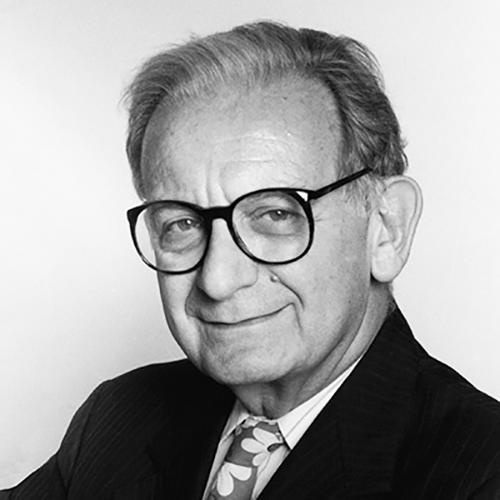
Last year we devoted a series of articles to the Beach Boys and cancer researchers from California. My wife Elie and I were recently at the home of our friends Carol and Neil, listening to Simon & Garfunkel (good Columbia alumni) on vinyl records, and I thought a similar series on New York would have merit.
So we begin our series of New York cancer researchers with James Holland, a truly outstanding clinical scientist who provided a bridge over troubled waters for many as one of the pioneers of cancer chemotherapy, and also was largely responsible for making Mount Sinai into the outstanding cancer center that it is to this day. He was born in Morristown, New Jersey in 1925; his father was a judge and his mother a homemaker. He went to Princeton for his undergraduate degree and to Columbia University’s College of Physicians and Surgeons for his MD.
Holland’s initial job after two years of army service was at Francis Delafield Hospital, a cancer hospital located in Washington Heights and affiliated with Columbia, at which he became involved in cancer treatment and research in the early 1950s. He would later say that a 4-year-old child, Josephine, with pediatric acute lymphocytic leukemia was the trigger for his subsequent clinical and research pathway. He soon went to the National Cancer Institute on a fellowship to pursue research in this field and initiated one of the first trials that combined two drugs rather than one for the treatment of pediatric acute lymphocytic leukemia—6-mercaptopurine (an alkylating agent) and methotrexate (an antimetabolite). This trial built on the animal studies of Lloyd Law, which showed in mice that administering a combination of drugs concurrently that had different mechanisms of action could be more efficacious than giving the same drugs sequentially.
Holland then moved to the Roswell Park Cancer Institute in Buffalo and continued this study as a multi-center trial. The cooperative group that he formed to conduct this study became known as Cancer and Leukemia Group B (CALGB) and became one of the foremost organizations in the U.S. for the conduct of clinical trials in leukemia and cancer, initially with Emil Frei as its head but with Holland at its head as of 1962. (The inquisitive reader may wonder why it was B and not A, but there was already an Acute Leukemia Group A in existence.)
At the time of Holland’s clinical trial, childhood acute lymphocytic leukemia was considered incurable. The results of Holland’s trial and the follow-up studies under the aegis of the CALGB pushed the cure rate for childhood acute lymphocytic leukemia to 50% by 1975; today it exceeds 90%. Around the same time, they also initiated trials for adult acute myelocytic leukemia with combination chemotherapy, and were responsible for some of the early successes with that disease as well.
Prior to Holland and others like him, there was no effective chemotherapy. His work paved the way for the inclusion of dose and duration of treatment with response and led to the use of combinations of drugs, which became a standard mainstay of oncology. The lessons learned in leukemia were soon replicated with lymphoma and then with various solid tumors, most notably breast cancer.
In 1973, Holland joined the faculty at Mount Sinai in New York, where he founded the Department of Neoplastic Diseases and became its chief. He remained in this position for the rest of his career. Interestingly, his brother became the director of the FDA.
Back in the days when textbooks were still dominant, two textbooks monopolized oncology—one was Holland-Frei and the other was DeVita. Both are now in their ninth or 10th editions and have educated and influenced the practice of oncology for decades.
Holland died in 2018 at the age of 92. One can say that the contributions of James Holland contributed to making “All your dreams are on their way, See how they shine. Like a bridge over troubled water, I will ease your mind.”
Alfred I. Neugut, MD, PhD, is a medical oncologist and cancer epidemiologist at Columbia University Irving Medical Center/New York Presbyterian and Mailman School of Public Health in New York. Email: ain1@columbia.edu.
This article is for educational purposes only and is not intended to be a substitute for professional medical advice, diagnosis, or treatment, and does not constitute medical or other professional advice. Always seek the advice of your qualified health provider with any questions you may have regarding a medical condition or treatment.








